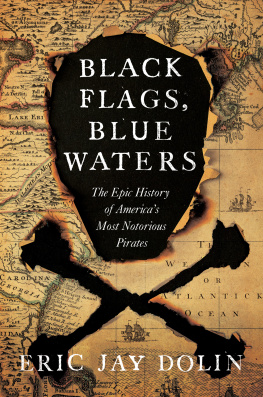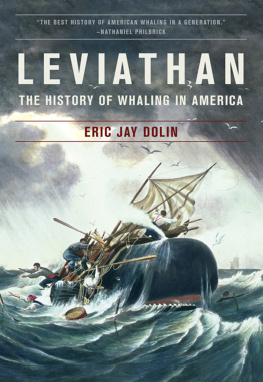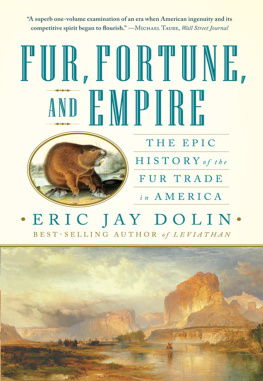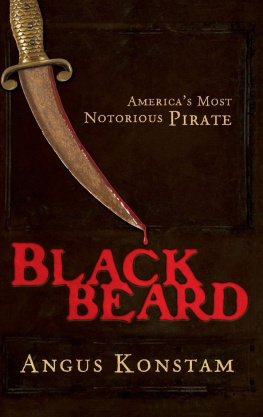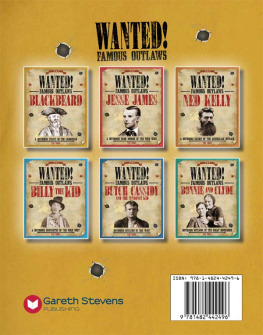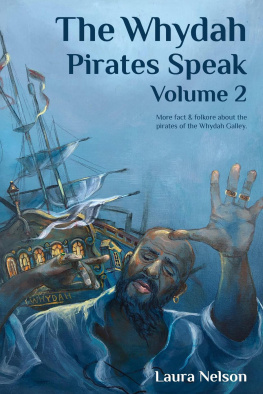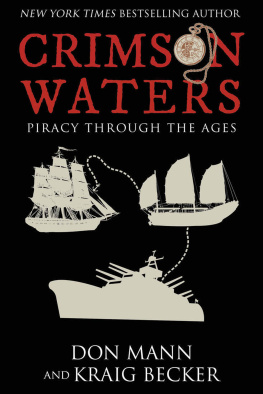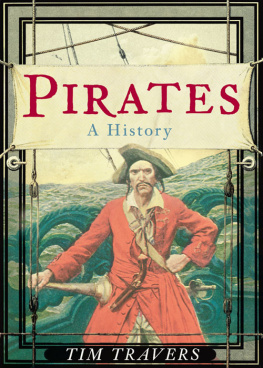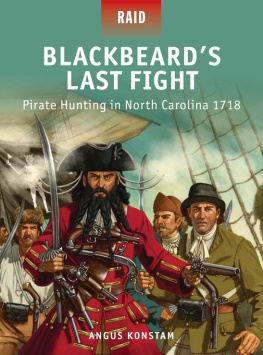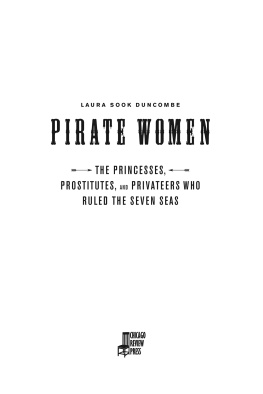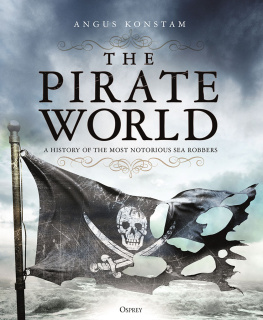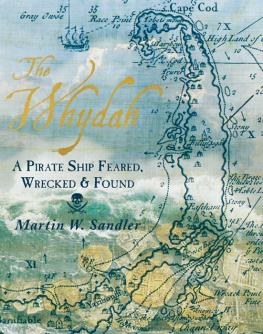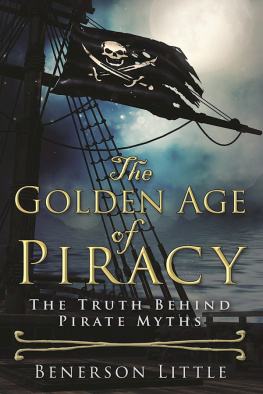Contents In Full

BLACK FLAGS, BLUE WATERS
OTHER BOOKS BY
ERIC JAY DOLIN
Brilliant Beacons:
A History of the American Lighthouse
When America First Met China:
An Exotic History of Tea,
Drugs, and Money in the Age of Sail
Fur, Fortune, and Empire:
The Epic History of the Fur Trade in America
Leviathan: The History of
Whaling in America
Political Waters
Snakehead: A Fish Out of Water
Smithsonian Book of
National Wildlife Refuges

Copyright 2018 by Eric Jay Dolin
Maps by David Cain
All rights reserved
FIRST EDITION
For information about permission to reproduce selections
from this book, write to Permissions, Liveright Publishing Corporation,
a division of W. W. Norton & Company, Inc.,
500 Fifth Avenue, New York, NY 10110
For information about special discounts for bulk purchases,
please contact W. W. Norton Special Sales
at specialsales@wwnorton.com or 800-233-4830
Book design by Barbara M. Bachman
Production manager: Anna Oler
JACKET DESIGN BY LAUREN PETERS-COLLAER
JACKET ART: CARTE PARTICULIRE DE LAMRIQUE
SEPTENTRIONALE, PRINTED FOR I. COVENS AND C.
MORTIER
Library of Congress Cataloging-in-Publication Data is available
ISBN 978-1-63149-210-5
ISBN 978-1-63149-211-2 (e-Book)
Liveright Publishing Corporation
500 Fifth Avenue, New York, N.Y. 10110
www.wwnorton.com
W. W. Norton & Company Ltd.
15 Carlisle Street, London W1D 3BS
To
Jennifer, Lily, and Harry
Ships are but boards, sailors but men:
there be land-rats, and water-rats,
water-thieves, and land-thieves;
I mean pirates.
WILLIAM SHAKESPEARE , The Merchant Of Venice
Contents
3. WHERE THE MONEY WAS AS
PLENTY AS STONES AND SAND
6. INTERLUDE, OR A
PIRATE CLASSIFICATION
8. THE GENTLEMAN PIRATE
AND BLACKBEARD
EPILOGUE: YO-HO-HO, AND A
BOTTLE OF RUM!
T HE ARCHAIC AND OFTEN MYSTIFYING SPELLINGS OF WORDS that appeared in some quotes have been changed (modernized) for easier reading and comprehension.
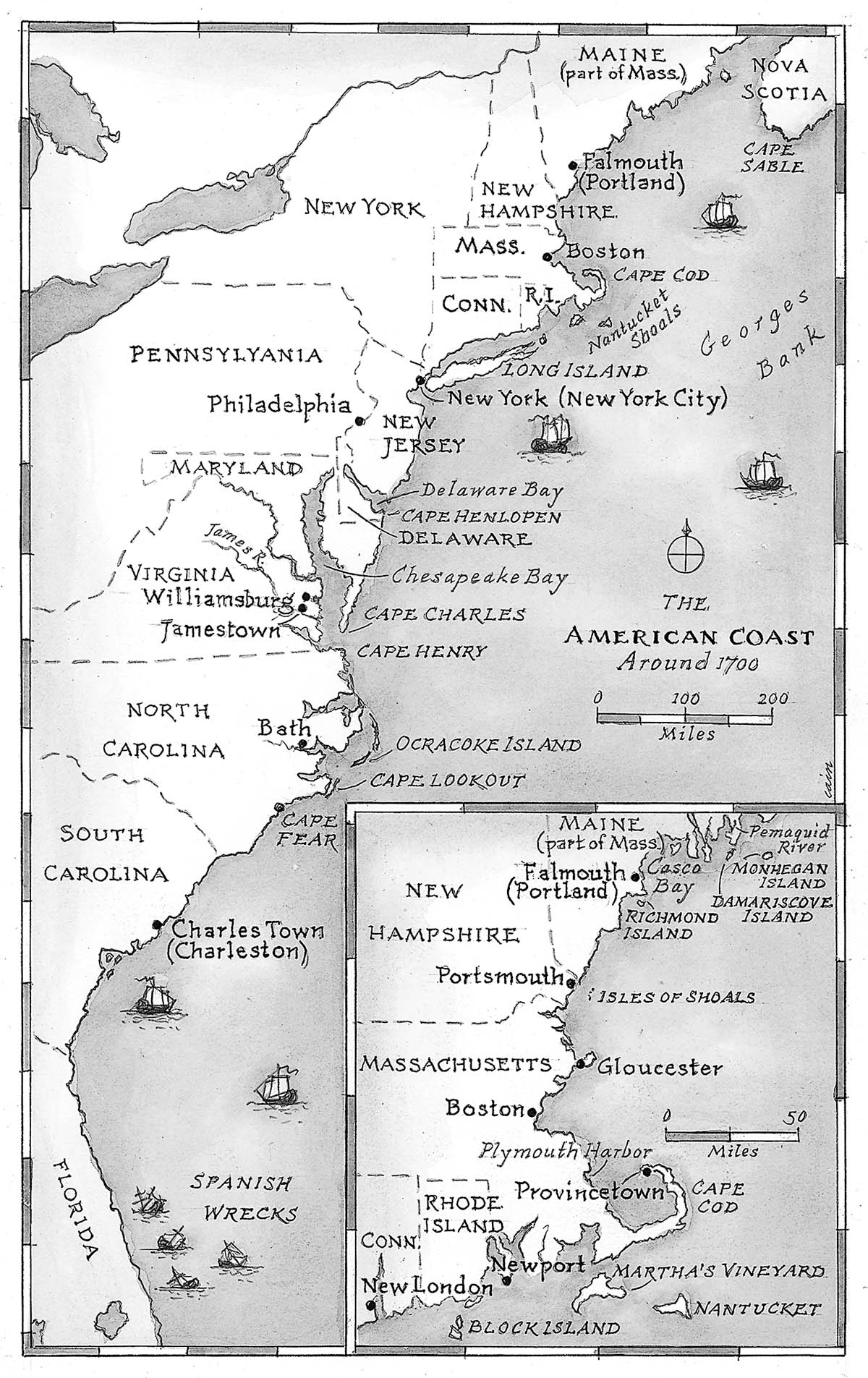
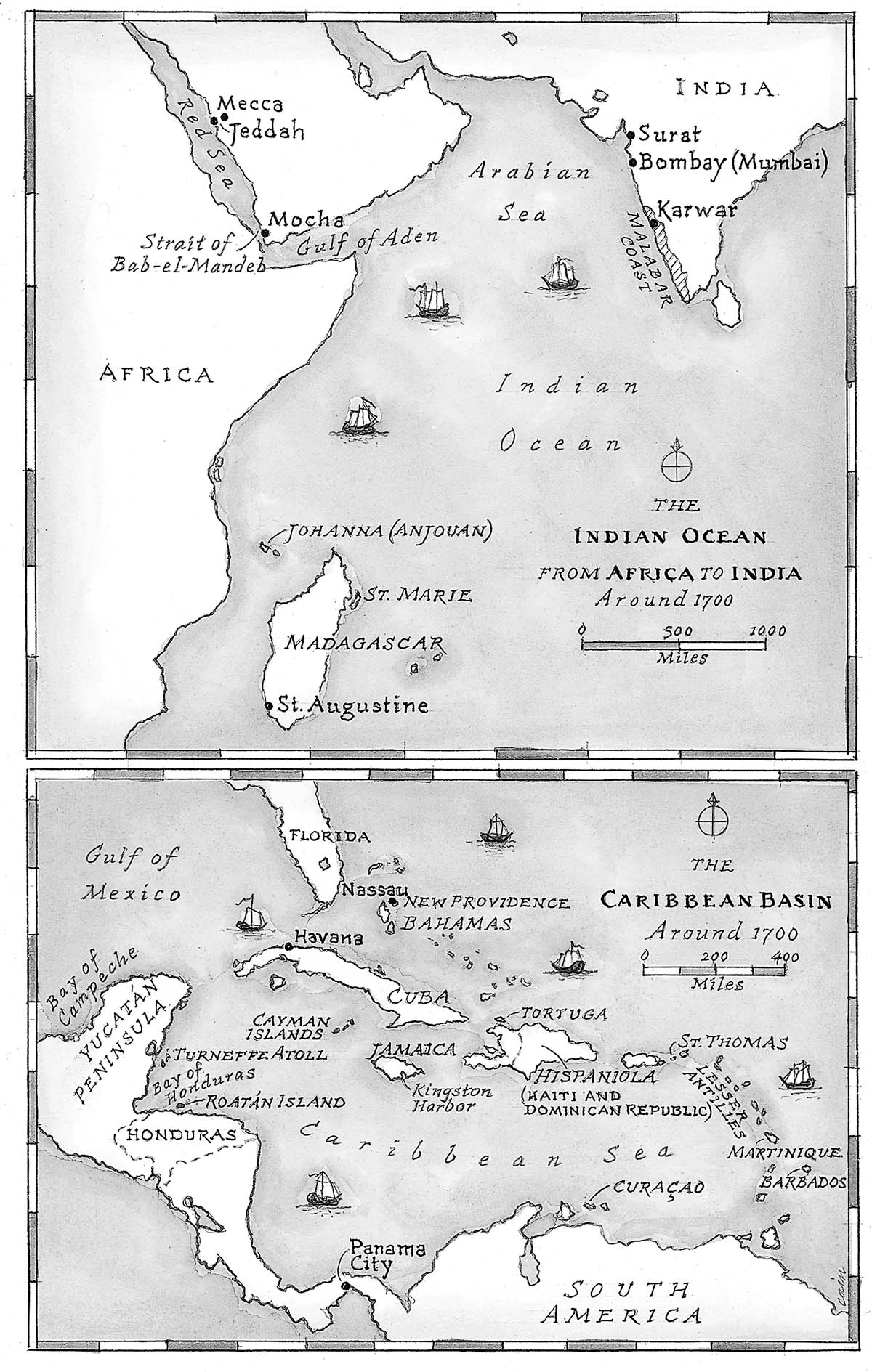
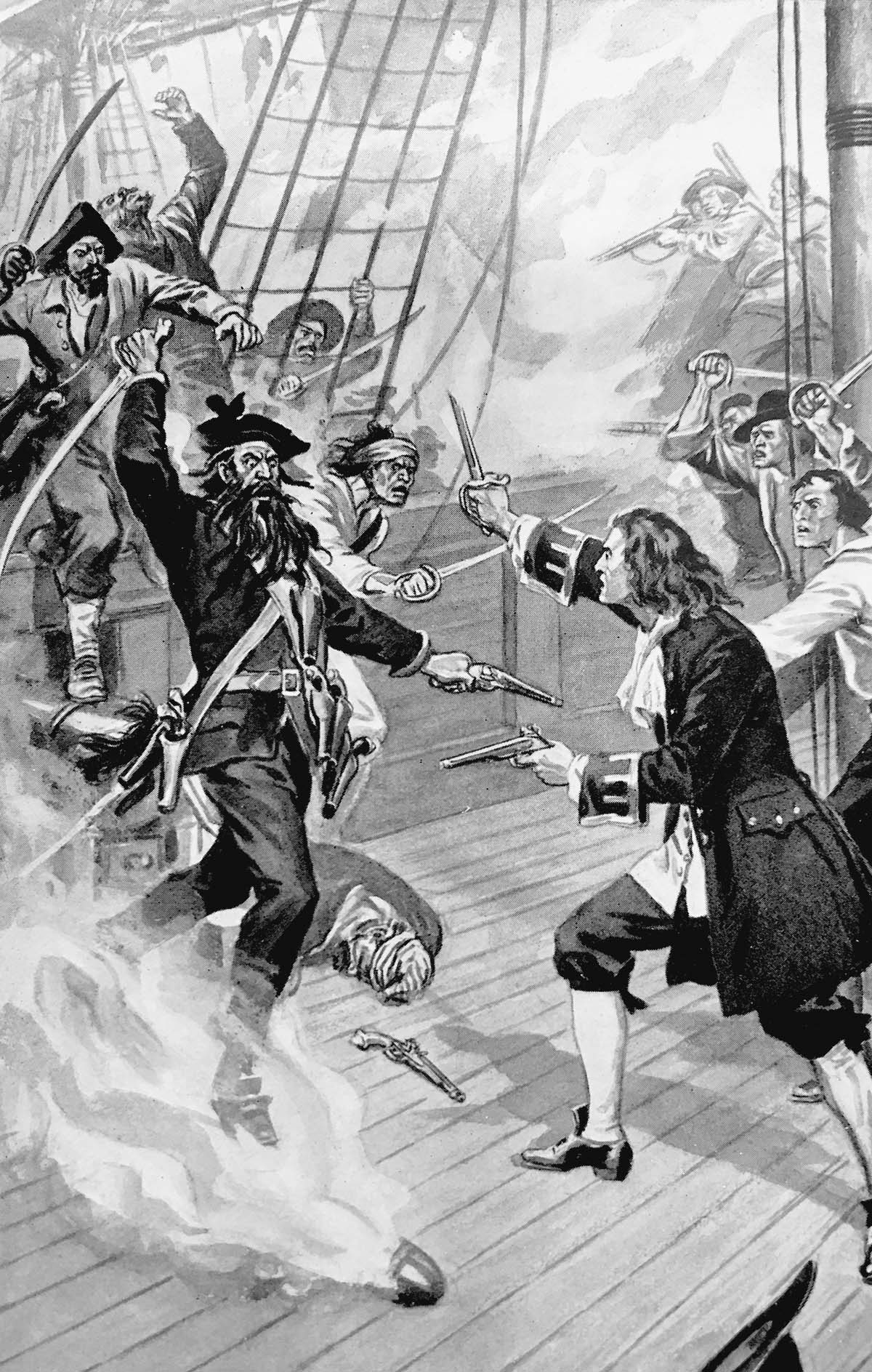
An early twentieth-century representation of Blackbeard the pirate fighting against British Naval Lieutenant Robert Maynard onboard the sloop Jane in late November 1718.
A T THE END OF APRIL 1726, CAPTAIN JOHN GREEN WAS FINALLY ready to leave. The last of the food, water, and supplies had been hoisted aboard the Elizabeth, which was tied to a wharf in Jamaicas capacious Kingston Harbor. Green and his sixteen-man crew were about to sail across the Atlantic to Africas Guinea Coast to pick up a cargo of slaves, the main labor source for the islands cruel economy. Jamaicas vast and lucrative sugar plantations brutally employed tens of thousands of slaves to do the backbreaking work of harvesting and processing sugar cane so that an ever-increasing number of people throughout the British Empire could sweeten their tea, coffee, and cakesmost of these consumers blissfully unconcerned about the horrors perpetrated to delight their palate. The death rate was so high on these plantations that the owners needed to continually replenish their supply of slaves to keep up with the growing demand for sugar. Without the services of men like Green and his crew, Jamaicas economy would eventually grind to a halt.
Not long after the Elizabeth departed from Jamaicas crystal blue waters, the trouble began. Captain Green, and his first mate, Thomas Jenkins, quickly earned the enmity of the majority of the crew, who claimed that the two men had subjected them to bad usage, and treated them barbarously... like dogs. Twenty-seven-year-old boatswain William Fly channeled this anger and began plotting a mutiny. In the dead of night on May 27, when the Elizabeth was hundreds of miles from the American coast, Fly and his coconspirators decided it was time to strike.
Just after one in the morning, Fly, who was standing watch, gave the signal. Tense with anticipation of the violence to come, he and four others strode across the main deck and approached Morrice Cundon, who was manning the helm. Fly leaned in close and whispered menacingly in Cundons ear, Damn you, if you stir hand or foot, or speak a word, Ill blow your brains out. To drive his threat home, Fly lifted his shirt to expose the gun tucked into his trousers. Petrified, Cundon watched as Fly climbed down the companionway to the captains cabin below, with crewman Alexander Mitchell following closely behind.
Violently rousing the startled Captain Green from his bed, the two mutineers hauled the struggling officer to the main deck. As they were about to pitch him into the sea, he screamed, For Gods with a vise-tight grip. It was, however, only a momentary reprieve. As Green dangled above the waves, Winthrop swung a coopers broadax in a mighty arc, bringing it down on the hapless captains wrist, severing his hand and launching him into the deep.
Their bloodlust still raging, the mutineers now searched for their next victimJenkins. Quartermaster Samuel Cole yelled to the mate, Come out of your cabin you dog. But Jenkins, who had heard Green struggling with his executioners just moments before, would not budge. Instead he pleaded, For the Lords sake, save my life. The mutineers hauled Jenkins out to the main deck, where Winthrop shattered his shoulder with his now bloody broadax, shouting, He should go over after his commander! as he threw the first mate overboard. Bobbing in the water, Jenkins called out, For Gods sake, throw me a rope. But there would be no help. The mutineers controlled the vessel, rechristening it Fames Revenge. Their reign as pirates had begun.
AFTER ELECTING FLY CAPTAIN, the pirates set a new course for the American coast in search of prey. Fames Revenge, a two-masted, square-rigged vessel called a snow, was not particularly formidable, boasting just four cannons and two mounted swivel guns, but it was powerful enough to fulfill its crews criminal designs. Over the next few weeks, Fly and company, boastfully calling themselves Gentlemen of Fortune, plundered three merchant vessels between North Carolina and New Jersey, taking a number of prisoners along the way. The most important prisoner was William Atkinson, the former captain of the merchantman Bonetta, who had been hitching a ride to Boston on one of the now-captured vessels. Since Atkinson was quite familiar with the local waters, Fly gave him a choiceeither pilot Fames Revenge to New England or the pirates would blow his brains out.
A reluctant Atkinson took up the task, and around June 12, Fly ordered him to direct the snow to Marthas Vineyard, where the pirates hoped to get water and wood. Atkinson, however, had other plans. He purposely missed the Vineyard, and Fames Revenge was well past Nantucket before Fly realized they were off course. Incensed by Atkinsons deception, Fly threatened to kill him but thought better of murdering his best pilot. Instead, he let Atkinson continue, ordering him to set a new heading for the waters off Nova Scotia, where the New England fishing fleet was gathered. If everything went according to plan, once there, Fly would be able to discard

